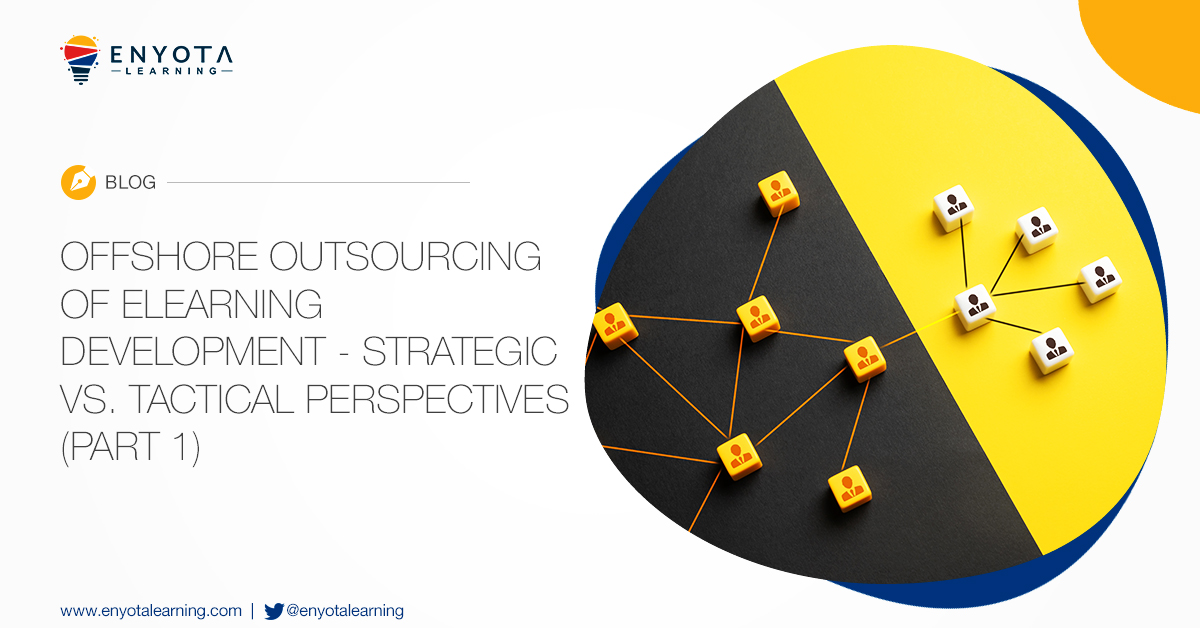Training employees has come a long way from traditional training methods like classroom training. Today, training employees on various subjects and providing on-the-job learning experiences has become an automated process. However, it is important to measure the effectiveness of eLearning courses to ensure the training courses are working for a particular set of learners/employees. It may be possible that a few training courses are well-designed with excellent features but are not right for the chosen set of learners. Hence, measuring the effectiveness of eLearning courses will help training managers to decide whether these eLearning courses are worth pursuing for their teams.

What Determines Effectiveness of eLearning Courses?
Effectiveness of eLearning courses depends on various parameters. When eLearning helps companies achieve its goals and business objectives such as increasing product revenue, reducing turnaround time, improving customer satisfaction, enhancing productivity and efficiency of the employees at work; the eLearning is said to be effective. Measuring the effectiveness of eLearning courses can be done by analyzing the impact of a certain training course on the learners. There lies no benefit in providing the most expensive eLearning courses to your employees if these courses do not help employees in enhancing their productivity at work while also help them do well at their jobs.
Here is a checklist to measure the effectiveness of your eLearning courses:
The Result or Outcome
The first in the list to measure the effectiveness of eLearning courses is to check the overall outcome of eLearning. It is important to align the outcome of completing your eLearning program to your eLearning objectives. For example, employees undergoing certain training should able to perform certain task at the end of their training. These are the desired outcomes of completing the training. Basically, eLearning course won’t be considered effective unless it fulfills the purpose as defined.
Knowledge Implementation
Another aspect for the eLearning training to be effective is to measure how learners are using their gained knowledge at the workplace. Your eLearning courses must aim to not only share knowledge with the learners but also help them improve their decision-making skills and responding to real-life situations likewise. The ability to perform the above mentioned tasks is a great way to measure the effectiveness of eLearning courses.
Perceived Learning, Skills, and Competency
A good understanding of the learning perceived by the learners, their acquired skills, and competency can be helpful in measuring the effectiveness of your eLearning courses. Comparing these aspects with their previous learning, skills, and competency gives a fair understanding of how effective your eLearning courses are for their overall productivity. If a considerable improvement is seen in these aspects, then your eLearning programs can be considered effective.
Attitude
The effectiveness of eLearning courses can also be determined by the levels of interests shown by your learners for the program. An effective eLearning course will attract more learners for further courses as they would want to train themselves better in other professional fronts. Ineffective eLearning programs would not lead to learners wanting to take more courses.
Learner Satisfaction
Satisfaction of learners also count for effectiveness of eLearning courses. An effective eLearning program needs to be designed in a learner-centric way such that it gives learners a satisfying learning experience. The knowledge shared with the learners should be relevant to their job and which can be implemented at workplace. This will enable them to improve in their desired fields of work. An effective eLearning course will offer a high level of learning satisfaction to its learners.
Skills Acquired
The skills acquired by your learners after taking an eLearning course has a direct correlation to the effectiveness of eLearning courses. Term it ineffective if learners do not acquire any skill even after taking the eLearning program.
Learning Content Retention
eLearning programs need to be designed in a way such that they are not only provide the required knowledge and skills to the learners but they also provide content that is easy to retain for a long period of time. Even an excellent eLearning course is of no good use if its content is difficult to retain for the learners.
Completion of Courses
The number of learners who have taken the eLearning course and completed, is also important to measure the effectiveness of eLearning courses. Many times, due to multiple reasons like unengaging content, no relevancy of content to the learners’ immediate needs, etc., learners do not complete the courses. When the number of learners who do not complete the course is high, it shows the ineffectiveness of the eLearning courses.
Learner Motivation and Engagement
Effective eLearning motivates and engages learners. Courses need to be engaging, motivating, and learner-centric to give learners a good learning experience. Use of graphics, videos, quizzes, and games are a few ways to keep your learners engaged, and to make the eLearning course more effective.
Cost-effectiveness of eLearning Courses
One way to measure the effectiveness of eLearning courses is to compare the cost to create an eLearning course and the impact or result it has produced. If the costs are low and the eLearning courses have helped learners to improve their skills, knowledge, and productivity, the courses are termed as effective. Measuring the ROI of these courses can also help you analyze how to proceed with future training.
If you have identified similar issues with your eLearning courses or have come across certain responses of learners towards the courses you conduct, it’s time to analyze the effectiveness of your eLearning courses based on the parameters mentioned above. If you have any queries related to any of these aspects, comment below or connect with us today! Try our learning management system out, it’s free for 30 days – Abara LMS – free 30-day trial.





